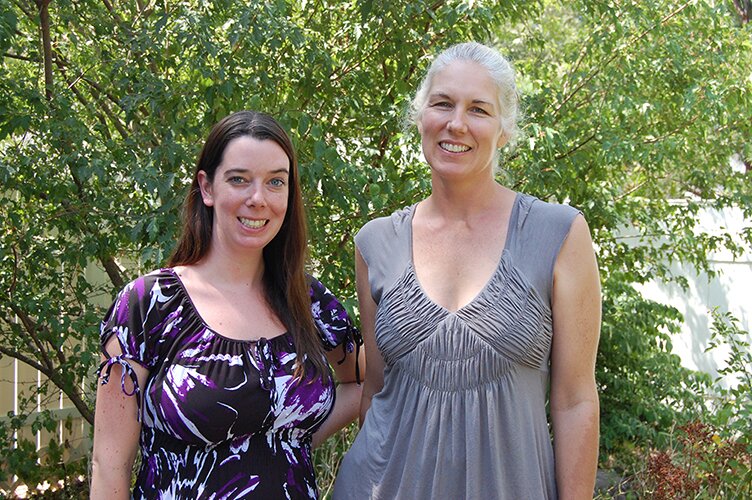Mary Horrigan at New England Science and Sailing: Providing opportunities to create a connection with the ocean
 The clock reads 11am, and New England Science and Sailing, located in Stonington, CT, is quiet – though it won’t be that way for long. Soon, groups of kids and teenagers will be arriving back from their morning lessons for lunchtime.
The clock reads 11am, and New England Science and Sailing, located in Stonington, CT, is quiet – though it won’t be that way for long. Soon, groups of kids and teenagers will be arriving back from their morning lessons for lunchtime.
As we explore the site, situated between a commercial fishing dock and the Stonington Harbor and Yacht Club, one class starts to cruise in. I watch in amazement as children no older than seven years old sail expertly into the dock.
New England Science and Sailing, or NESS for short, is a source of education and fun for children in the surrounding communities, providing programs year-round for everyone from Pre-K to adults.
Mary Horrigan, program director at NESS, gives us a tour of the facility, which was once part of the yacht club, but expanded in order to provide a wider breadth of programming.
Mary says that NESS provides a conduit for people, young and old, to feel connected with the ocean. “People are disconnected from this resource that’s right in their community,” she said. “One of our goals is to get people comfortable with being in the water.”
And with more people comfortable with being in the water, the greater the chances that people understand and respect the ocean and what’s happening within it. There are fishermen, and recreational users, and a Naval station just a few miles away. Horrigan says that by opening up the ocean to community members, people can become more connected to what’s in their backyards.
A diverse set of program offerings allow everyone to feel engaged – from adventure sports, to marine science, power boating, and of course, sailing. And because there’s something for everyone, there is also an opportunity for everyone to grasp ocean planning and management concepts.
Expanding the reach
An initiative that Horrigan describes as particularly effective is programming for nearby communities that lack funding and educational resources. Scholarships provide opportunities for children and youth to explore the ocean, regardless of financial means.
Additionally, the U.S. Sailing‘s program implemented at NESS, called REACH, is a platform to encourage youth to embrace STEM-based careers (those within the science, technology, engineering, and math realms). The hands-on approach equips young people with collaborative skills that are applicable in professional environments.
Appreciation leads to action
Horrigan says that all of their programming starts with making sure attendees understand the imperative to “Respect everything in the area,” whether that means catching and releasing critters as part of learning about ecosystems, or respecting the other ocean users.
“The children learn and feel proud of the ocean and where they’re from,” Horrigan says. “We want to provide more opportunities for that.”
These current and future stewards of the ocean will benefit from a comprehensive ocean plan – creating new generations of ocean users who are invested in the process.
Local example for regional success
The sailing in and around Stonington, CT, proves to be a salient metaphor for the importance of ocean planning on both a local and regional scale. On a daily basis, Mary and her students balance their activities in concert with fishermen, the Navy, and recreational users. Just as it takes an ample amount of communication and collaboration between everyone at the local level to ensure that no two uses are in conflict with each other, a regional ocean management plan will ensure the same success for all who frequent New England’s working waterfronts, coasts, and ocean.
“We’re out there using the ocean, and we need access, especially in certain areas where we want to connect to certain ecosystems,” Horrigan says. “Right now we can access the coves, but what if  the submarines want to go through there?”
the submarines want to go through there?”
She says their interest in ocean planning is to provide continued access to areas for education– and in doing so, they’ll create the future engaged users who will benefit from and be invested in ocean management for decades to come.
New England can expect a finished regional ocean management plan by this time next year. Once implemented, the plan will usher in a wealth of data and guidelines through which stakeholders can better collaborate, share information, and facilitate effective decision-making for the management of our ocean.
As NESS fosters a growing community of burgeoning young ocean lovers, ocean planning in the northeast will provide the framework through which such stewardship can thrive for years to come.





Recent Comments